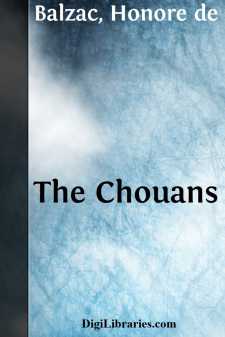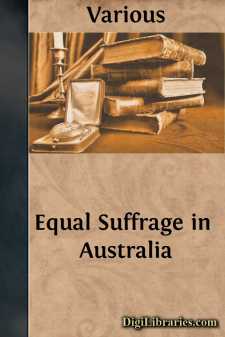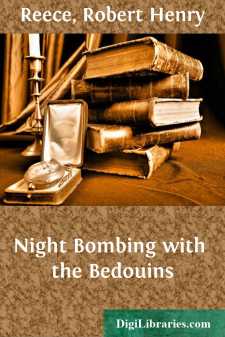Categories
- Antiques & Collectibles 13
- Architecture 36
- Art 48
- Bibles 22
- Biography & Autobiography 813
- Body, Mind & Spirit 142
- Business & Economics 28
- Children's Books 17
- Children's Fiction 14
- Computers 4
- Cooking 94
- Crafts & Hobbies 4
- Drama 346
- Education 46
- Family & Relationships 57
- Fiction 11829
- Games 19
- Gardening 17
- Health & Fitness 34
- History 1377
- House & Home 1
- Humor 147
- Juvenile Fiction 1873
- Juvenile Nonfiction 202
- Language Arts & Disciplines 88
- Law 16
- Literary Collections 686
- Literary Criticism 179
- Mathematics 13
- Medical 41
- Music 40
- Nature 179
- Non-Classifiable 1768
- Performing Arts 7
- Periodicals 1453
- Philosophy 64
- Photography 2
- Poetry 896
- Political Science 203
- Psychology 42
- Reference 154
- Religion 513
- Science 126
- Self-Help 84
- Social Science 81
- Sports & Recreation 34
- Study Aids 3
- Technology & Engineering 59
- Transportation 23
- Travel 463
- True Crime 29
Sort by:
by:
Honore de Balzac
I. AN AMBUSCADE Early in the year VIII., at the beginning of Vendemiaire, or, to conform to our own calendar, towards the close of September, 1799, a hundred or so of peasants and a large number of citizens, who had left Fougeres in the morning on their way to Mayenne, were going up the little mountain of La Pelerine, half-way between Fougeres and Ernee, a small town where travellers along that road...
more...
by:
Jacob Kainen
PREFACE John Baptist Jackson has received little recognition as an artist. This is not surprising if we remember that originality in a woodcutter was not considered a virtue until quite recently. We can now see that he was more important than earlier critics had realized. He was the most adventurous and ambitious of earlier woodcutters and a trailblazer in turning his art resolutely in the direction of...
more...
JOSEPH BRANT—THAYENDANEGEA. Few tasks are more difficult of accomplishment than the overturning of the ideas and prejudices which have been conceived in our youth, which have grown up with us to mature age, and which have finally become the settled convictions of our manhood. The overturning process is none the less difficult when, as is not seldom the case, those ideas and convictions are widely at...
more...
Captain Cook—His Life, Voyages, and Discoveries. Early Training. Among all those Englishmen who, from a humble origin, have risen to an honourable position, Captain James Cook is especially worthy of record. His parents were of the peasant class—his father having commenced life as a farm-labourer, and his mother being a cottager’s daughter. Probably, however, they were both superior to others of...
more...
by:
Allen Chapman
CHAPTER I IN THE SNOW "Now then, let's see who can put a shot through that round hole in the tree-trunk up there. Take a try, Sid." "Must be twenty yards away from here, if a foot, eh, Bristles?" "More like twenty-five to me, Colon; and looks farther than from first base to third, on the diamond." "Line up, everybody, and we'll soon find out who takes the cake at...
more...
by:
Various
Lady Holder, the wife of Sir Frederick W. Holder, K. C. M. G., Speaker of the House of Representatives of Federated Australia, contributed the following article to the N. Y. Independent, of June 9, 1904. Lady Holder has taken a leading part in philanthropic work in South Australia. She says: "The women of South Australia were placed in a position of political equality with men several years ago....
more...
by:
Joseph Clayton
INTRODUCTION The British Influence Our business here is to give some plain account of the movement towards democracy in England, only touching incidentally on the progress of that movement in other parts of the world. Mainly through British influences the movement has become world wide; and the desire for national self-government, and the adoption of the political instruments of democracy—popular...
more...
by:
Various
The kite fever visited Hagarstown every year, and caught all the boys over five before it subsided. It generally crept in slowly, a boy and a kite at a time; but this year it came as if a big wind brought it. Yesterday there had been three kites up at one time in the main street, and Squire Jones's pony had been scared into a canter. The Squire, and Mrs. Jones, and the three Misses Jones, and Aunt...
more...
by:
Various
AFFECTION. General St. Amour.—This officer, who distinguished himself in the Imperial service, was the son of a poor Piedmontese peasant, but he never forgot his humble extraction. While the army was in Piedmont, he invited his principal officers to an entertainment, when his father happened to arrive just as they were sitting down to table. This being announced to the general, he immediately rose,...
more...
CHAPTER I PER ARDUA AD ASTRA In prehistoric times the first man to make for himself a stone hatchet probably became the greatest warrior of his particular region. He may not have been as strong physically as his neighbor, but with the aid of so marvellous an invention as a stone hatchet he undoubtedly conquered his enemies and became a great prehistoric potentate, until some other great man made a...
more...











